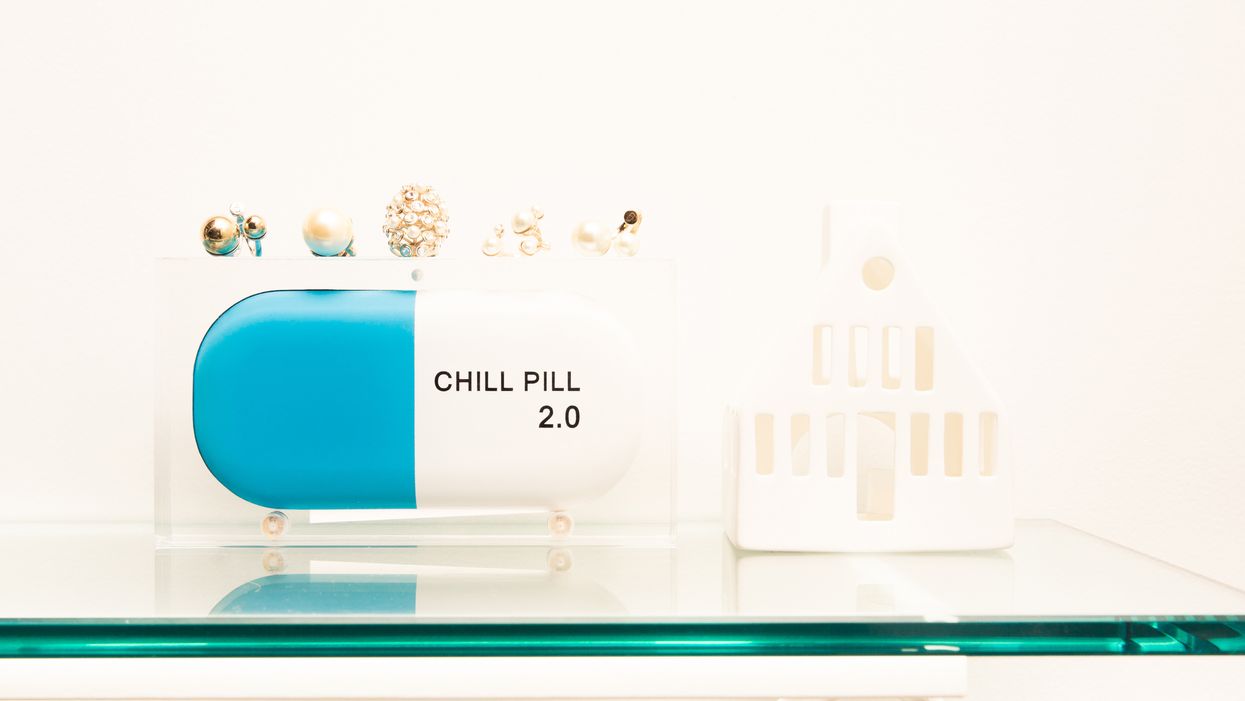Your Multivitamin Could Be Doing You More Harm Than Good
Ritual's CEO & In-House Scientist share the ingredients that they think you need to be wary of.

Chances are that by now you’ve all caught on to the fact that we’re a little bit obsessed with vitamins, even the ones injected by way of IV. But there is also no doubt that as we slowly (but surely) navigate our way through adulthood, we’ve realized that you can’t believe everything you read and that many things are strictly hearsay. Take for example the “fact” that everyone should be taking a multivitamin and that they will all do wonderful, life-changing things for you. Have you ever really sat back to truly think about what else may be hiding in your multivitamin besides all of those, well, vitamins? Enter Ritual: a new health brand that values traceability and simplicity—in other words, they want you to know exactly what your vitamin ingredients are and where they are coming from. Ritual’s founder and CEO, Kat Schneider, who started the company when she was pregnant, clearing her house of products that contained not-so-safe ingredients.“I looked up the vitamins that I was taking every single day and realized that some of the questionable ingredients that I was avoiding throughout the house were in the vitamins that I was ingesting every single day,” she told us.
We chatted with both Scheider and Ritual's in-house scientist and head of research and development, Dr. Luke Bucci (who has both a BSc in Chemistry anda PhD in Biomedical Sciences), to learn more about some of the harmful (not to mention disgusting) ingredients that are hiding in those little capsules.
“There are 9 essential nutrients that women ages 18-50 are not getting enough of (based on science, research, and thousands of studies): D3, K2, B12, boron, iron, vitamin E, magnesium, folate, and omega-3s,” says Kat Schneider. “What was shocking was it wasn’t the 20-40 things in a typical multivitamin [that we need], it was only nine.”
Ritual’s multivitamin is “non-GMO, soy-free, gluten-free, sugar-free and free of colorants,” Schneider continues. “Ritual contains no or virtually undetectable amounts of microbes, heavy metals, contaminants (like PCBs, dioxin, BpA, phthalates, solvents, herbicides, pesticides, mycotoxins, or other unwanted chemicals). Beyond ingredients that can be actually harmful, we also stayed away from the stuff that was just downright gross. Most vitamins are encapsulated with things like fish skin, pig snouts, and carrageenan or are tableted with questionable ingredients. Instead, we chose a vegan capsule made from tree bark that resists stomach acid, delivering nutrients to the most absorptive part of your gut. We also created the first-ever clean beadlet. We got rid of things like the talc, plastics, and shellac (read: beetle poop) typically used and replaced them with non-GMO corn protein.”
Harmful Ingredients to Avoid in Your Vitamins:
90% of vitamins contain one or more of the following ingredients:
1. Petroleum byproducts: “[This is where] most vitamins are sourced from. [The] concern is the remnants of the solvents and chemicals leftover from the manufacturing process.”
2. Coal tar derivatives: “These come about as intermediates in production of some vitamins. Like petroleum byproducts, concern is leftover residues from intermediates used to make the vitamin.”
3. Polyethylene glycol (PEG): “Found in certain vitamins and industrial antifreeze. In high doses, PEG is a laxative.”
4. Titanium dioxide: “A colorant commonly used in vitamins that is indigestible.”
5. Mineral oil: “Detracts from effects of [multivitamins] and causes vitamin deficiencies.”
6. Carrageenan: “Causes gastrointestinal inflammation.”
7. Parabens: “Affect estrogen and thyroid hormone metabolism.”
8. Ion-exchange resins: “Plastic beadlets commonly used in cyanocobalamin B12—[they] slow absorption into the body.”
9. Gelatin: “A common ingredient in capsules—often made from cow skin and bones.”
10. Artificial colorants: “Known allergens and/or suspected carcinogens.”
(Please note: Coveteur does not provide medical advice and readers should consult a medical professional.)